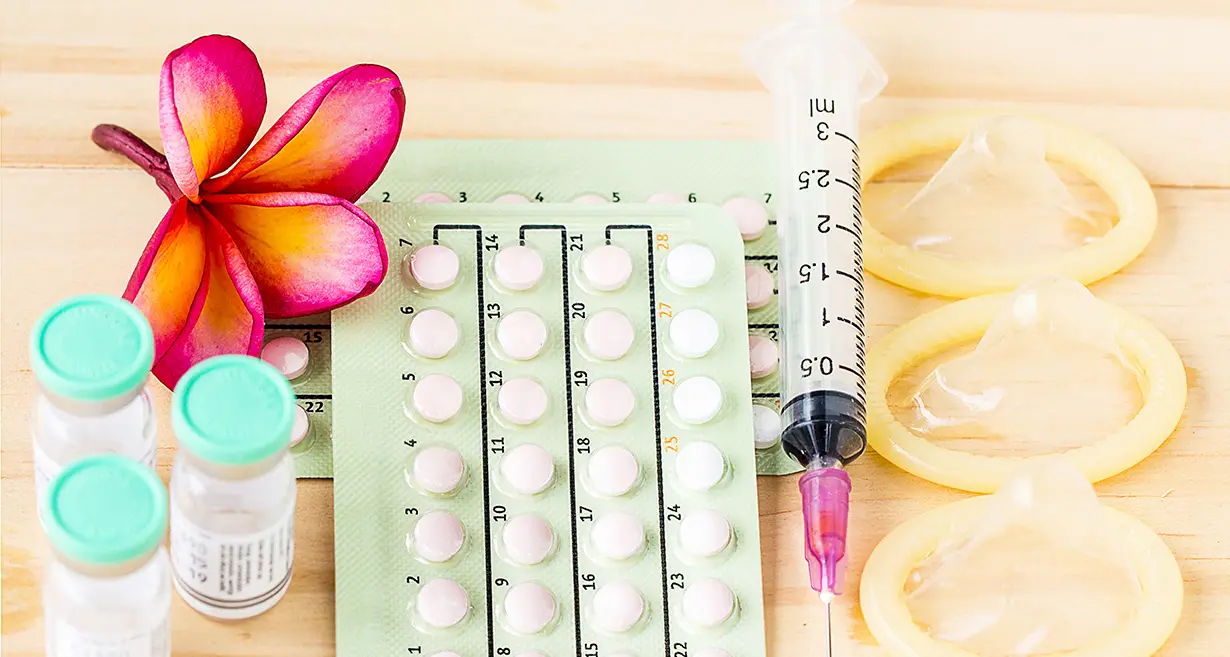
According to recently published studies, around 8% of the world’s female population suffers from recurring vaginal infections, especially vaginal yeast infections. The condition is painful, and uncomfortable and impacts one’s quality of life drastically.
If you are struggling with symptoms of recurrent vaginal infection, seeing a gynecologist is crucial, especially to pinpoint the exact cause and get on a customized treatment plan to address the concerns and lead a healthy life.
This article will explore more about vaginal yeast infection, its symptoms, causes, and the best line of treatment.
In this Article
What is Vaginal Yeast Infection?
Vaginal yeast infection is a type of infection that occurs due to the overgrowth of yeast in the vagina. Medically termed candidiasis, the condition is a direct consequence of the excessive growth of candida, a type of yeast.
A healthy vagina contains a balance of bacteria and yeast cells that maintain and regulate the vaginal pH. However, in situations where this balance is disturbed, the yeast cells start multiplying rapidly, leading to infection.
Identifying the symptoms of an active vaginal yeast infection is simple. It involves feelings of excessive itching, burning, and irritation in the vagina. If you are experiencing any of those symptoms, take note of them and discuss the same with your gynecologist before things take a turn for the worse.
What are the Symptoms of Vaginal Yeast Infection?
Before we discuss the potential causes, let us walk you through the full list of vaginal infection symptoms you should know.
They include:
- Incessant vaginal itching
- Swelling around the vagina
- Painful sexual intercourse
- Burning sensation during urination or during sex
- Soreness
- Redness and irritation
- Rashes in the vagina
Some women also notice a white-yellow colored discharge from the vagina due to recurrent infection. Instead of being watery and transparent, if the discharge looks cloudy and clumpy, it is a sign of yeast infection.
What causes Recurrent Vaginal Infection?
Vaginal infections can be a result of multiple reasons. It primarily occurs when there is a disturbance in the balance of bacteria and yeast cells in the vagina. Excess growth of the yeast leads to signs of recurrent vaginal infection.
Now, as practicing gynecologists at Queen’s Gynecology, we come across several patients regularly with similar complaints. And, the most common question they have is, “Why is it happening frequently?”
There could be several causes but we wanted to pinpoint the three major fungal infection causes.
1. Improper Antibiotics
We all know of antibiotics and their functions. They help deal with excessive and unwanted bacterial growth in the body, which could be contributing to infections, etc.
But, did you know that the over-the-counter antibiotics you are taking might be affecting your vaginal environment? There are several compositions of antibiotics, which provide you with temporary relief but they also deplete the levels of good bacteria in the vagina.
Since the good bacteria in the vagina is responsible for keeping the yeast levels in check, the lack of bacteria contributes to the overgrowth of the yeast in the vagina, leading to recurrent infections.
2. Not Completing the Antibiotic Course
As human beings, we have a tendency to avoid medications. It could be a habit, it could be due to the taste or it could be for other reasons.
However, let us assume that your doctor has prescribed you an antibiotic course for two weeks. You need to take the antibiotics once, twice, or thrice a day for the next two weeks to complete the course.
But, by the end of the first week, you feel recovered and the symptoms aren’t prevalent anymore. You don’t feel the burning sensation and the itching isn’t present too. What do you do next? You most likely stop taking the antibiotics for the next week, leaving the course incomplete.
This is another reason why you might be experiencing recurring vaginal infections. It is quintessential that you complete the entire course of your antibiotics as prescribed by your doctor. Sometimes, the symptoms might subside but there could be remnants of the infection present that can overgrow and show symptoms a few weeks later.
3. Being Sexually Active with Someone with an Active Infection
If your partner has an active infection, engaging in unprotected sexual intercourse with them could be one of the causes of yeast infection in females.
It is thus necessary that both you and your partner are continuously tested for every kind of sexually transmitted infection (STI) before engaging in unprotected sexual intercourse. If your partner with an active infection hasn’t been treated for the same can pass the infection to you during sex.
Does Chronic Infection Happen in the Vagina?
If you are experiencing recurrent vaginal infections, the same can lead to a more serious issue called chronic vaginal infection.
Any kind of imbalance in the pH levels in the vagina can lead to the symptoms of chronic vaginal infection. If left untreated, the issue can take a turn for the worse, leading to issues like:
- Reduced quality of life
- Enhanced risks of contracting other types of STIs
- Pelvic inflammatory disease
- Infertility
- Fetomaternal complications in pregnant women
- Pre-term birth
Besides the standard causes like misuse of antibiotics, vaginal douching, excessive use of soaps and shampoos, etc., the chronic vaginal infection can also be a sign of a weakened immune system due to diseases like HIV, and AIDS or due to chemotherapy, radiation, etc. Even pregnant women are often susceptible to vaginal infections due to hormonal imbalances in the body.
How is Vaginal Yeast Infection Treated?
The vaginal yeast infection treatment relies on the cause. At Queen’s Gynecology, our treatment starts with a comprehensive diagnosis. Understanding what’s contributing to the recurrent infection helps us analyze the correct route of treatment.
Following the diagnosis, some of the most effective treatment options include:
- Taking antifungal medications for up to a week
- One-time, and a single dose of fluconazole
- Long-course vaginal therapy with antifungal medications for up to two weeks and then once a week for up to six months
- Two to three different doses of antifungal medications
- Azole resistant therapy
The treatment option depends on the cause. If the infection isn’t severe, short-term vaginal therapy might suffice. However, if the infection is recurrent and severe, the treatment might involve a more aggressive regimen of medications.
Conclusion
Recurrent vaginal yeast infections aren’t good for a woman overall health. When left untreated, the condition can lead to long-term (and often irreversible) complications like infertility. If you are experiencing any symptoms or you know someone who is suffering, reach out to us at Queen’s Gynecology for a comprehensive evaluation and treatment. The expert team at Queens will be more than ready to answer all your questions and guide you to the best possible solution.
FAQs
Certain home remedies like the use of coconut oil, consumption of garlic, application of tea tree oil cream, etc. might be used in conjunction with proper medications to relieve the symptoms.
Yeast infections aren’t very contagious but you might pass it to your partner if you have a severe case of infection. Hence, it is ideal to avoid any kind of sexual relationship if you suspect you have an active infection.
Yeast infections are quite common during pregnancy. The hormonal imbalance during pregnancy often triggers the overgrowth of yeast in the vagina, leading to the infection.






























































































































































































